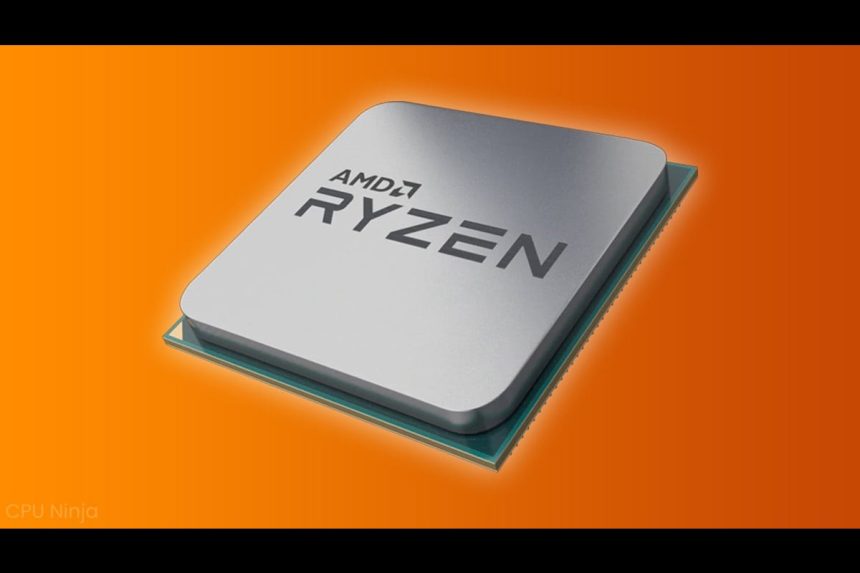In a recent press statement, Gigabyte, a well-known producer of computer hardware components, announced that their latest entry-level servers would support the upcoming Ryzen 7000 series successor which is set to release later this year. This caused a significant stir in the tech industry, as Ryzen CPUs have gained a significant following over the years. However, Gigabyte later retracted the statement, claiming it was an error.
TechRadar received an email from a Gigabyte representative confirming that the statement about the next-gen Ryzen CPUs launching later this year was inaccurate. Gigabyte admitted they did not know the release date for the Ryzen 7000 successor. The company also intended to clarify its statement without changing the original wording.
The news was a letdown for many AMD enthusiasts eagerly anticipating the next wave of Ryzen CPUs. The original statement from Gigabyte had mentioned that the AM5 platform would support the upcoming Ryzen 7000 series successor that was supposed to launch later this year. Still, they have updated the statement and removed any mention of the Ryzen 7000 series. The new statement simply confirms that their AM5 platform will support future generations of AMD Ryzen desktop processors.
The confusion caused by Gigabyte’s statement highlights the importance of accurate and clear communication in the tech industry. While it’s understandable that companies may want to generate excitement and buzz for their products, they mustn’t make promises they can’t keep or provide false information to consumers.
AMD has not officially announced the Ryzen 7000 series and its successor, which leaves the launch date uncertain. However, rumors and leaks circulating in the tech industry suggest that the Ryzen 7000 series might be launched in early 2023, followed by its successor. Nevertheless, it’s important to remember that such rumors lack official confirmation from AMD.
The Ryzen 7000 series is expected to feature the Zen 4 core architecture and utilize the 5nm node. It’s rumored to have significant improvements in performance and efficiency over its predecessor, the Ryzen 5000 series. It is is also expected to support DDR5 memory and PCIe 5.0, providing faster data transfer speeds than the current DDR4 memory and PCIe 4.0.
After the Ryzen 7000 series, AMD plans to release its first batch of CPUs based on the Zen 5 core architecture, Granite Rapids. These processors, belonging to the Ryzen 8000 series, will leverage a combination of 4nm and 3nm process nodes. The Zen 5 cores are projected to offer boosted performance and efficiency, a revamped front end, and integrated AI and machine learning optimizations.
It’s important to note that AMD’s CPU roadmap is subject to change and may be impacted by various factors, such as the ongoing global semiconductor shortage. As such, it’s important not to take any rumors or leaks as official information until AMD makes an official announcement.
The development and release of CPUs, as with any complex technology, is a complex process that involves many moving parts. Various internal and external factors can impact a company’s ability to stick to its initial roadmaps, such as issues with production, supply chain disruptions, or unexpected market shifts.
In the current climate, the global semiconductor shortage has significantly impacted the tech industry, including CPU manufacturers like AMD. This shortage has caused many companies delays and supply chain disruptions, forcing them to adapt their strategies and release schedules.
Therefore, it is essential to exercise caution regarding rumors or leaks about upcoming CPU releases, even if they seem credible. Unless AMD makes an official statement or announcement, there is always the risk of the information being inaccurate or outdated due to unforeseen circumstances.
Gigabyte’s erroneous statement regarding the launch of next-gen AMD Ryzen CPUs may have caused disappointment, but the company’s reputation as a leading manufacturer of computer hardware components remains intact. Due to its future-proofing capabilities, the AM5 platform, which supports DDR5 memory and PCIe 5.0, is expected to be a popular choice for those building new systems. Users can be assured that the AM5 platform can handle the next generation of CPUs from AMD and other manufacturers.
It should be emphasized that AMD’s CPU plans are not set in stone and are subject to change. The ongoing global semiconductor shortage, among other factors, could affect the company’s roadmap. Therefore, it’s crucial not to rely solely on rumors or leaks and instead wait for official statements from AMD to confirm any news about upcoming CPU releases.


